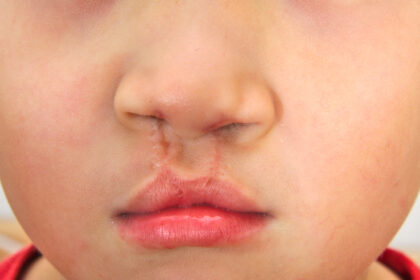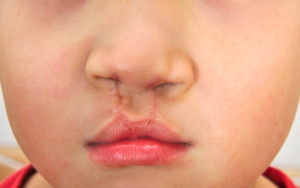
1 in every 4,000 babies each year is born with a cleft lip. Resulting in a gap between the mouth, nose and lip, cleft lip is a birth defect that causes the separation of the facial elements around the nose and palate. If you have just found out either via ultrasound that your child has a cleft lip or have recently given birth to a baby who has a cleft lip, don’t worry a second longer. Through a surgical procedure, your child will be able to live a normal and healthy life. Read on to learn more about cleft lip surgery for infants.
What is a cleft lip?
In order to fully understand the cleft lip surgery process, it’s important to know exactly what a cleft lip is and what it does. A cleft lip is an opening between the nose and mouth that hasn’t formed correctly. During the first three months of pregnancy, a baby’s lip and palate are supposed to form but sometimes do not— resulting in a cleft lip.
What are the problems associated with a cleft lip?
If left untreated, cleft lips can cause dental problems and the inabili ty to eat properly. However, until your baby has surgery to properly fix their cleft lip, there are special bottles that are designed in order to ensure that your baby is getting the right amount of food and nutrients they need in order to properly grow.
ty to eat properly. However, until your baby has surgery to properly fix their cleft lip, there are special bottles that are designed in order to ensure that your baby is getting the right amount of food and nutrients they need in order to properly grow.
What is surgery like?
Depending on the overall health of your baby, cleft lip surgery can typically take place when the baby is around three months old. During the surgery, and after anesthesia has been administered to your little one, one of Associated Plastic Surgeons & Consultants surgeons will work to seal the gap that has formed between the mouth and nose in order to give your child the ability to eat, chew, and smile.
What is recovery like?
You can expect that your baby will spend the night in the hospital in order to be properly monitored after surgery. However, once discharged, you will be given specific feeding instructions for your baby and will be instructed to keep the area clean. Although a scar will be visible at first, it will slowly fade over time and shouldn’t be apparent in the future.
If your child has a cleft lip and you would like to learn more about the surgical options used to treat it, contact Associated Plastic Surgeons & Consultants today!


